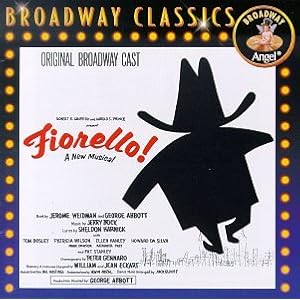 |
| musical in which Dear Rich staff had the lead in MacArthur High School |
- your work is totally original. Sorry, we're sure there is a lot of originality in your work, but it's also derived from other works. The copyright owner controls the right to make derivatives. Yes, there's creativity required to adapt works but doing so without authorization is infringement.
- your work doesn't compete with the original songs. Your work doesn't have to compete to infringe.
- your work promotes (advertises) the original work. Does it? It may cause listeners to conjure up the original -- that's the reason why people create parodies of famous songs -- but it's primarily being used to promote your ideas and concepts.
- the songs 'work' whether or not the listener knows the original. That's not a defense to infringement and in any case that's true for most parodies. We would probably appreciate Weird Al's "Eat it" whether or not we know the MJ version. But the real success of the adaptation relies on its juxtaposition and familiarity -- otherwise, why use the original in the first place.
- your plays are not commercial. This may be factor in a fair use analysis or in assessing damages, but won't make much difference when determining if you are infringing. In any case, you're seeking revenue for your work so we think this argument is moot, as the lawyers say.
- your adaptations are transformative. Don't confuse the fact that you are "transforming" the songs with the transformative standard used in copyright law. Most courts require that the transformation comment upon or parody the original. It is usually not considered transformative when the material is used to poke fun at something other than the original -- for example to use the Dr. Seuss style to poke fun at the judicial system. Check out these fair use examples.
We don't want to dissuade you from creating musicals. The world needs more. But we also don't want you to invest a great deal of money in promoting or publishing these works only to get hit with a cease & desist letter. The use of a song in a show requires a special license from the music publisher as does the modification of the lyrics (that's right, Weird Al has to pay big bucks for these songs!). So unless you're positive you'll be flying below the radar, we think you're engaging in some risky behavior.















0 comments:
Post a Comment